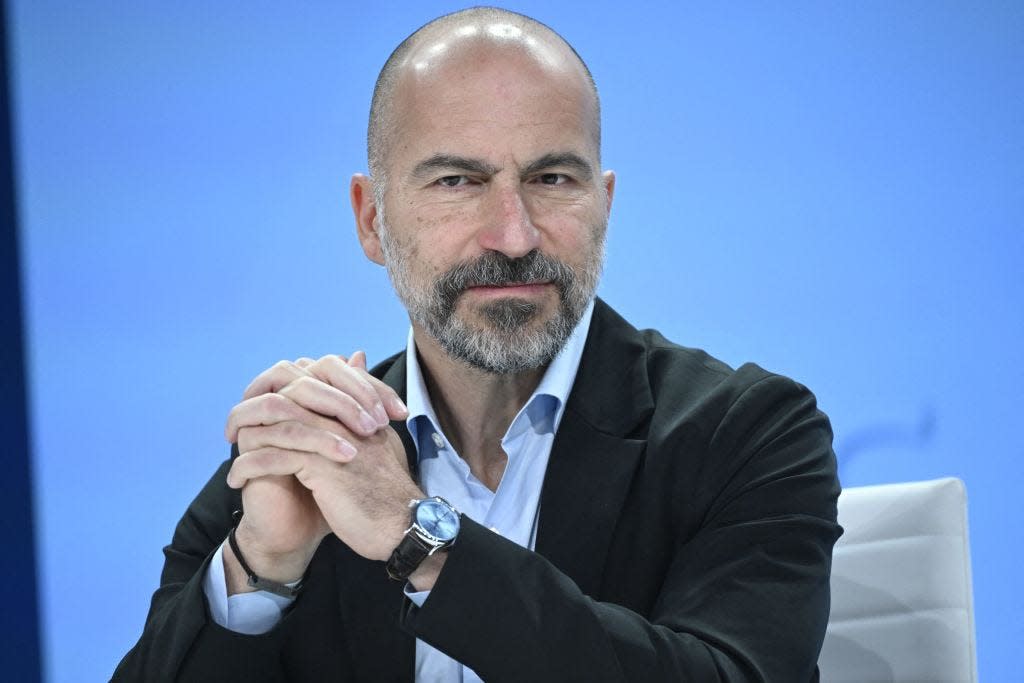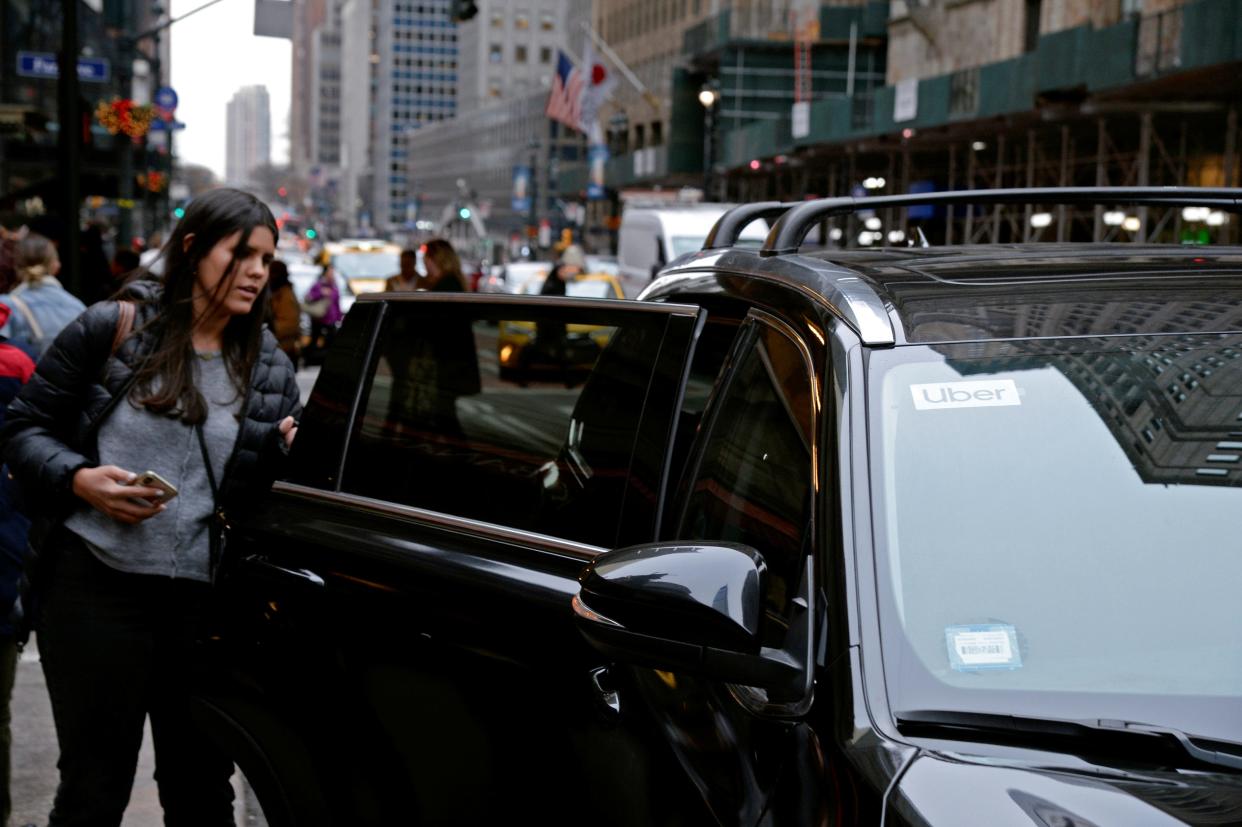CEO Dara Khosrowshahi says remote work took away some of Uber's best customers, but commuters are starting to come back

Uber lost some of its "most frequent customers" thanks to the rise of remote working, its CEO said.
Dara Khosrowshahi made the observation during the company's Q1 earnings call.
That trend is reversing somewhat though, and "people are getting back to work," Khosrowshahi said.
Uber CEO Dara Khosrowshahi wants to see more workers going back to the office, and not just at his own company.
Workers are still not using Uber as a "daily habit" for their commute as many did prior to the pandemic, which is hurting the ride-hailing giant's growth, the CEO said.
"With the pandemic, I think a lot of people who were kind of commuting to work, etc., stopped commuting," Khosrowshahi said on the company's earnings call on Wednesday.
"We have lost some of our most frequent customers," he said, adding that "there is an audience who kind of stopped using us as frequently as they used to."
Khosrowshahi's comments came as Uber reported mixed earnings for the year's first quarter.
Total revenue was roughly in line with Wall Street's expectations, coming in at $10.13 billion.
However, the company reported a surprising net quarterly loss of $654 million.
Shares of Uber dropped sharply on Wednesday following the report, but recovered some losses in pre-market trading Thursday.
The company attributed the loss to legal and regulatory changes and settlements and added that the loss includes "a $721 million net headwind from unrealized losses related to the reevaluation of its equity investments."
Uber is currently facing a multimillion-pound lawsuit from more than 10,000 black cab drivers in London.
Khosrowshahi told CNBC the loss had "nothing to do with the operating business."
His line is supported by Uber's $1.4 billion EBITDA, an 82% year-on-year increase.

Looking ahead, Khosrowshahi said on the earnings call that Uber saw the "weekday commute use case" as a key area for growth as more people return to the office — or are forced back under strict mandates.
"Some folks may not like that, but we love it here at Uber, people getting back to work and getting back to the office," he said,
The CEO said he was hopeful that commuters would continue to return.
"One interesting trend we're seeing is that people are getting back to work," he told CNBC in an interview.
Globally, gross bookings — the value of transactions on its app — were up 21% year on year, and the audience expanded by 15%, Khosrowshahi said.
"Demand for Uber remains strong," he added on the earnings call.
However, despite Khosrowshahi's vision of a return to regular commuting, CEOs are gradually starting to accept that hybrid work is set to stay.
In a KPMG survey released in April, 34% of US CEOs said they expect workers whose roles were once tied to an office to be back in their cubicles five days a week in the next three years, down from 62% who held that view in 2023.
About 98% of Americans want to work remotely at least some of the time, according to Forbes Advisor.
Khosrowshahi told employees that beginning in April 2022, Uber staffers in 35 of the company's locations were required to return to the office at least half the time.
He has allowed some workers to be entirely remote if they receive clearance from managers.
Uber did not immediately reply to a request for comment from Business Insider.
Read the original article on Business Insider
